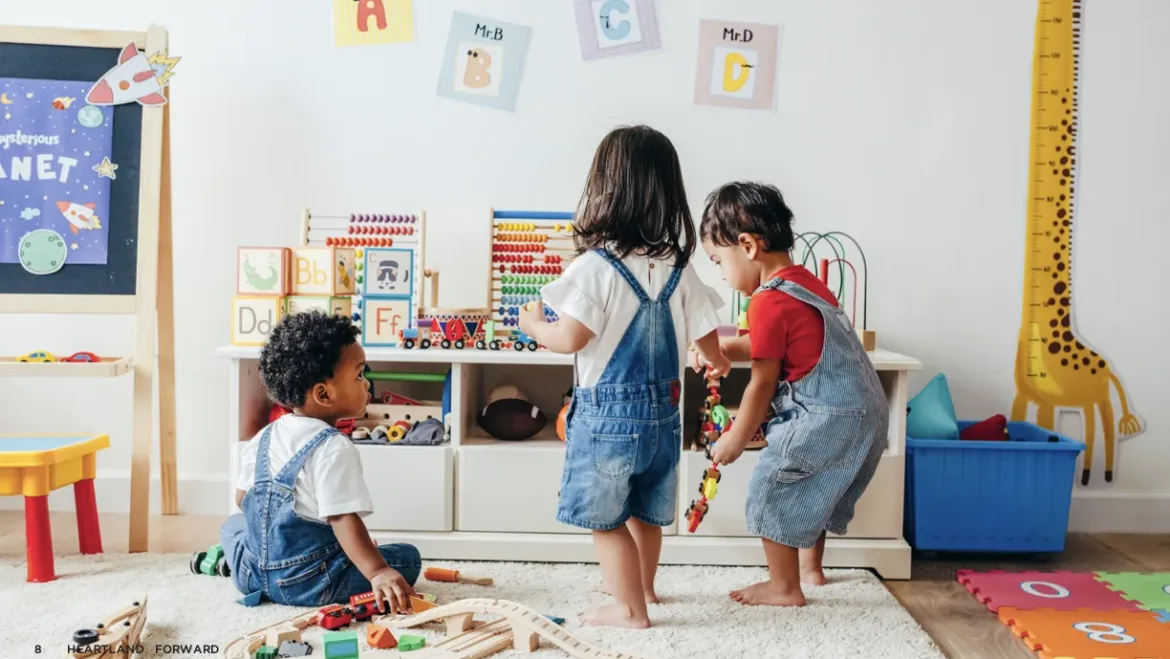Choosing the right daycare for your child is one of the most important decisions you will make as a parent. A high-quality daycare provides a nurturing, safe, and stimulating environment that supports your child’s early development. But how can you tell if a daycare is truly top-notch? Here are the key signs of a high-quality daycare center to help you make an informed decision.
1. Safe and Clean Environment
One of the first things to look for in a daycare center is cleanliness and safety. A high-quality daycare maintains high standards of hygiene and ensures that the facility is free from hazards.
- Floors, play areas, and bathrooms should be clean and well-maintained.
- Safety features like childproofed electrical outlets, locked cabinets for hazardous materials, and secured doors and windows should be in place.
- Toys and equipment should be sanitized regularly to prevent the spread of germs.
- Emergency exits and fire extinguishers should be easily accessible and properly maintained.
2. Low Child-to-Teacher Ratio
A low child-to-teacher ratio ensures that children receive adequate attention and care. High-quality daycare centers follow recommended guidelines for the number of children per caregiver, which varies by age group:
- Infants (0-12 months): 1 teacher per 3-4 children
- Toddlers (1-3 years): 1 teacher per 4-6 children
- Preschoolers (3-5 years): 1 teacher per 8-10 children
Smaller groups allow caregivers to provide individualized attention, promote learning, and ensure the safety and well-being of each child.
3. Qualified and Caring Staff
The quality of caregivers and teachers is crucial in determining the standard of care. A reputable daycare center employs staff who:
- Hold certifications in early childhood education or child development.
- Have experience working with young children.
- Are trained in CPR and first aid.
- Show genuine warmth, patience, and enthusiasm when interacting with children.
- Continuously update their skills through training programs and professional development.
4. Stimulating and Age-Appropriate Curriculum
A high-quality daycare does more than provide babysitting services; it fosters early learning through structured and play-based activities. Look for a center that offers:
- A well-planned daily schedule that includes storytelling, music, art, and outdoor play.
- Age-appropriate educational materials and toys.
- Activities that promote cognitive, social, and motor skills development.
- Opportunities for creative expression and problem-solving.
5. Strong Focus on Social and Emotional Development
Children develop essential social and emotional skills in daycare settings. A high-quality daycare:
- Encourages positive interactions between children and caregivers.
- Teaches conflict resolution and cooperation.
- Supports children in expressing their emotions in a healthy way.
- Helps children develop empathy, patience, and respect for others.
6. Nutritious Meals and Snacks
Proper nutrition is essential for a child’s growth and development. A good daycare provides:
- Balanced meals and snacks that meet dietary guidelines.
- Accommodations for food allergies and special dietary needs.
- A clean, well-maintained dining area where children can eat comfortably.
7. Effective Communication with Parents
A high-quality daycare values parental involvement and keeps parents informed about their child’s progress. Look for a center that:
- Provides daily reports or updates on your child’s activities, meals, and mood.
- Encourages open communication between parents and caregivers.
- Has a system for addressing parental concerns and feedback.
- Offers parent-teacher meetings and workshops to support parenting skills.
8. A Strong Reputation and Positive Reviews
Word of mouth and online reviews can provide valuable insights into a daycare’s quality. Look for a center that:
- Has positive testimonials from other parents.
- Is recommended by friends, family, or community members.
- Has a good reputation with licensing authorities and child welfare organizations.
9. Engaging Indoor and Outdoor Play Areas
Physical activity is vital for young children. A high-quality daycare offers:
- A spacious, well-equipped outdoor play area with safe climbing structures, swings, and slides.
- Indoor play areas with toys and activities that encourage movement.
- Regularly scheduled outdoor playtime to promote physical fitness and exploration.
10. Licensed and Accredited
A daycare center should be properly licensed and meet state and national regulations. Accreditation from organizations like the National Association for the Education of Young Children (NAEYC) is a strong indicator of quality. Ensure that:
- The center has up-to-date licensing and accreditation.
- The facility complies with health and safety regulations.
- Staff members undergo background checks and proper training.
11. A Warm and Welcoming Atmosphere
The environment of a daycare should feel warm and inviting. Signs of a nurturing setting include:
- Caregivers who greet children warmly and engage with them.
- A child-friendly atmosphere with bright, cheerful decorations.
- A sense of community where children feel comfortable and valued.
12. A Focus on Individual Needs
Every child is unique, and a good daycare recognizes and supports individual needs by:
- Adapting activities to suit different learning styles.
- Providing additional support for children with special needs.
- Encouraging children to express themselves at their own pace.
13. Encouragement of Independence and Confidence
A high-quality daycare helps children develop independence by:
- Allowing them to make simple choices, like selecting activities.
- Encouraging self-care skills, such as washing hands and tidying up.
- Offering praise and support to build confidence and self-esteem.
14. A Commitment to Continuous Improvement
The best daycare centers continually strive for excellence by:
- Seeking feedback from parents and staff.
- Updating teaching methods and curriculum based on new research.
- Investing in new resources, equipment, and staff training.
Conclusion
Choosing a high-quality daycare center is essential for your child’s safety, development, and happiness. By considering factors like safety, staff qualifications, curriculum, communication, and accreditation, you can find a daycare that provides a nurturing and enriching environment. Take your time to visit and evaluate daycare options to ensure the best choice for your little one.

